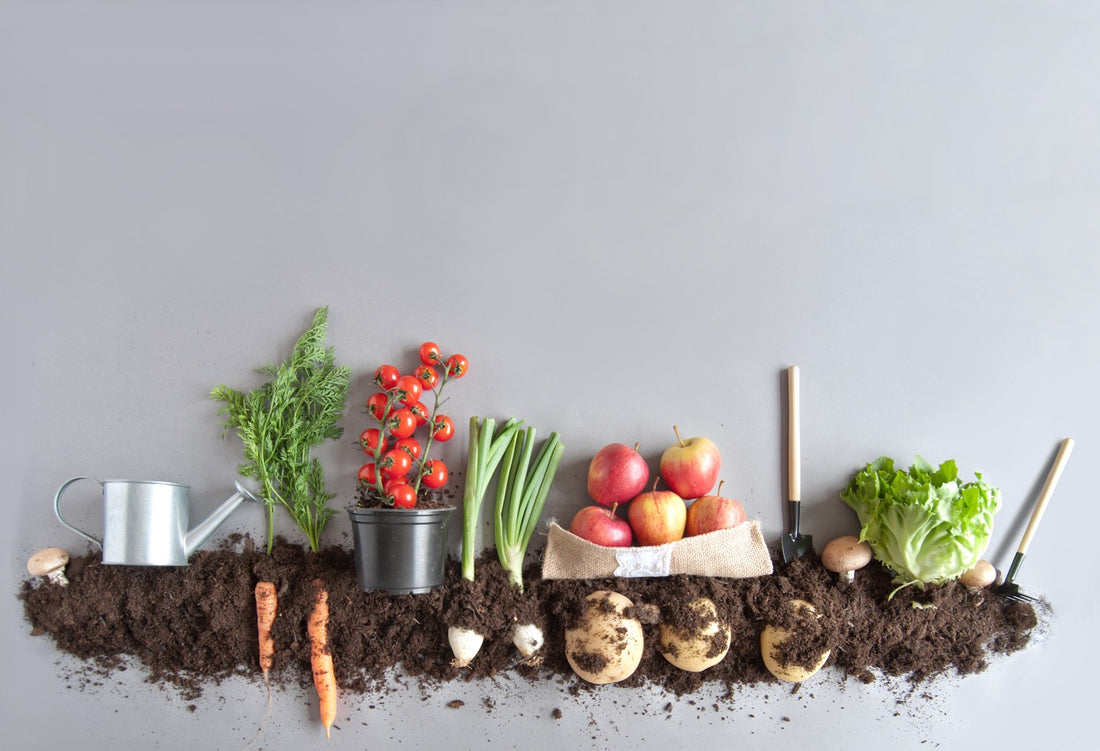
Composting Coffee Ground
Composting with the coffee ground is a great way to utilize something that would otherwise be discarded. Many cities and counties accept it in their composting programs. Composting coffee grounds may provide an adequate supply of nitrogen for your compost pile. Coffee grounds should be worked into compost piles similar to the other green materials, and not allowed to leach out over time. Recycling coffee grounds is a cost-effective way to help maintain our earth’s environment. Coffee grounds can be used as compost by mixing with animal manure and adding it to the garden soil.
Composting coffee ground with manure for a dual boost of soil goodness. Adding your used coffee grounds to your manure pile is an easy and effective way to improve soil health and remove excess “green” waste from the home. The pre-owned coffee ground will likewise help microorganisms valuable to plant development flourish just as pull in worms. Numerous individuals feel that coffee grounds bring down the pH (or raise the corrosive degree) of soil, which is useful for corrosive adoring plants. However, this is just valid for unwashed coffee grounds.

Coffee Grounds As Fertilizer
Utilized coffee grounds for cultivating doesn't end with fertilizer. Numerous individuals decide to put coffee ground straight onto the soil and use it as compost. The thing to remember is while coffee grounds add nitrogen to your fertilizer, they won't promptly add nitrogen to your soil.
There is an interesting but natural phenomenon that the fresh coffee ground is acidic. but the utilized coffee ground is neutral. If you flush your used coffee ground, they will suffer a nonpartisan pH of 6.5 and won't influence the corrosive levels of the soil. To utilize coffee ground as compost, work the coffee ground into the soil around your plants. Extra weakened coffee functions admirably like this as well.
How Do We Use Coffee Grounds?
Here we discuss comprehensive and proper method to use coffee grounds for composting;
- Spread the coffee ground straightforwardly on the soil. Develop into the soil. Whenever left to dry out, they can repulse water similarly to peat greenery that gets dry.
- Spread on the soil and cover with leaves or fertilizer or bark mulch.
- Add to the manure heap by layering the fixings utilizing 1/3 leaves, 1/3 new grass clippings, and 1/3 coffee ground.
- Add coffee ground as a feature of a static fertilizer heap, being certain to consistently add an identical measure of a carbon source like destroyed paper or dry leaves. Combine as one well.
- Coffee grounds are not nitrogen manure. The coffee ground was blended in with fertilized soil at a proportion of 25% by volume. Lettuce seeds showed helpless paces of germination and hindered development contrasted with lettuce seeds planted in preparing blend without coffee ground.
- Add paper coffee channels to the fertilizer heap as a carbon source. Attack little pieces to speed disintegration.
- If you are fusing coffee ground straightforwardly into the soil, add nitrogen compost simultaneously. Coffee grounds empower the development of microorganisms in the soil, which use nitrogen for their development and generation. While the coffee ground is being separated by the microorganisms, the extra nitrogen in the compost will give a wellspring of supplements to your plants.

The Most Effective Techniques To Compost With Coffee Grounds
Before you add coffee ground to your fertilizer heap or nursery there are a couple of things you should know:
- Coffee grounds add natural make a difference to your soil. This improves your soil's water maintenance, air circulation, and seepage. Besides, the coffee ground will support microorganisms that are valuable to plant development and draw in worms and another biota to your soil.
- Coffee grounds are not acidic. Previously, there have been worries that as coffee is acidic, the coffee ground should likewise be acidic and along these lines ought to just be added to corrosive cherishing plants. Notwithstanding examines have shown that the pH of coffee ground is genuinely unbiased. The corrosive in coffee is water-dissolvable so the causticity mostly winds up in some coffee.
- Used coffee grounds contain limited quantities of caffeine. Caffeine is anything but an incredible expansion to your nursery or your manure heap; nonetheless, the sums are probably going to be genuinely low and will be weakened by different things in your fertilizer heap or potentially soil. The aversion of caffeine can be utilized for your nursery's potential benefit.
- Coffee grounds have been appeared to hinder slugs and snails. It is indistinct whether this is because they can't endure the limited quantities of caffeine in the coffee ground or whether they don't care for the coarse surface, or a mix of both of these. Essentially put an obstruction of the coffee ground around the plants you wish to ensure; not any more unforgiving slug pellets. There is likewise proof that pre-owned coffee ground can assist with dissuading subterranean insects and felines from your nursery as well.
There are various choices for fertilizing the soil with your coffee ground. Your favored treating the soil alternative will shift contingent upon the size of your nursery, regardless of whether you have a created manure heap or whether you have another strategy for fertilizing the soil your green waste.
Are you Add Coffee Grounds Directly to Your Soil?
Note that coffee grounds are not nitrogen manure. Assuming you are adding coffee ground straightforwardly to your soil, you may have to add nitrogen manure simultaneously. This functions admirably for more modest measures of coffee ground, for example, those created from preparing coffee once per day. If you are creating bigger amounts of coffee ground, getting additional coffee ground from neighborhood bistros and cafés, or have coffee channels in your coffee ground we would propose utilizing one of the different strategies. The coffee ground will support the development of microorganisms in the soil which will utilize nitrogen to develop and duplicate. While the coffee ground is absorbing into the soil there may in this way be a decrease in nitrogen accessible to your plants.
Some Instructions About Coffee Grounds:
There are some instructions to utilize a coffee ground for composting;
- Coffee grounds are about 2% nitrogen by volume.
- Grounds are not acidic; the corrosive in coffee is water-dissolvable so the corrosive is for the most part in the coffee.
- Coffee grounds are near pH unbiased (between 6.5 to 6.8 pH).
- Scatter your coffee ground onto the outside of your soil and blend in well. On the other hand, add the coffee ground to the surface and cover them with leaves, manure, or mulch.
- Do not just add the coffee ground to the outside of your soil. If they are left as a layer on a superficial level, they can dry out and structure a layer keeping water from penetrating your soil.
- Coffee grounds improve soil ploughland or design.
- Coffee grounds are a superb nitrogen amount for treating the soil Compost Specialists recorded supported temperatures of 140 to 160 degrees Fahrenheit for as long as about fourteen days when coffee grounds were 25% of the material in the fertilizer increase by volume.

Other Uses of compost Coffee Grounds in Gardens
The coffee ground can likewise be utilized in your nursery for different things.
- Numerous groundskeepers like to utilize utilized coffee grounds as a mulch for their plants. Other utilized for coffee grounds incorporate utilizing it to get slugs and snails far from plants.
- The hypothesis is that the caffeine in the coffee ground contrarily influences these vermin thus they stay away from the soil where the coffee ground is found.
- A few groups likewise guarantee that coffee grounds on the soil are a feline anti-agent and will hold felines back from utilizing your bloom and veggie beds as a litter box.
- You can likewise utilize coffee grounds as worm food if you do vermicompost with a worm receptacle. Worms are extremely enamored with the coffee ground.
- Coffee grounds are an extraordinary expansion to the nursery and manure heap. Help to reuse this incredible natural asset and decrease the number of organics going to the landfill!
